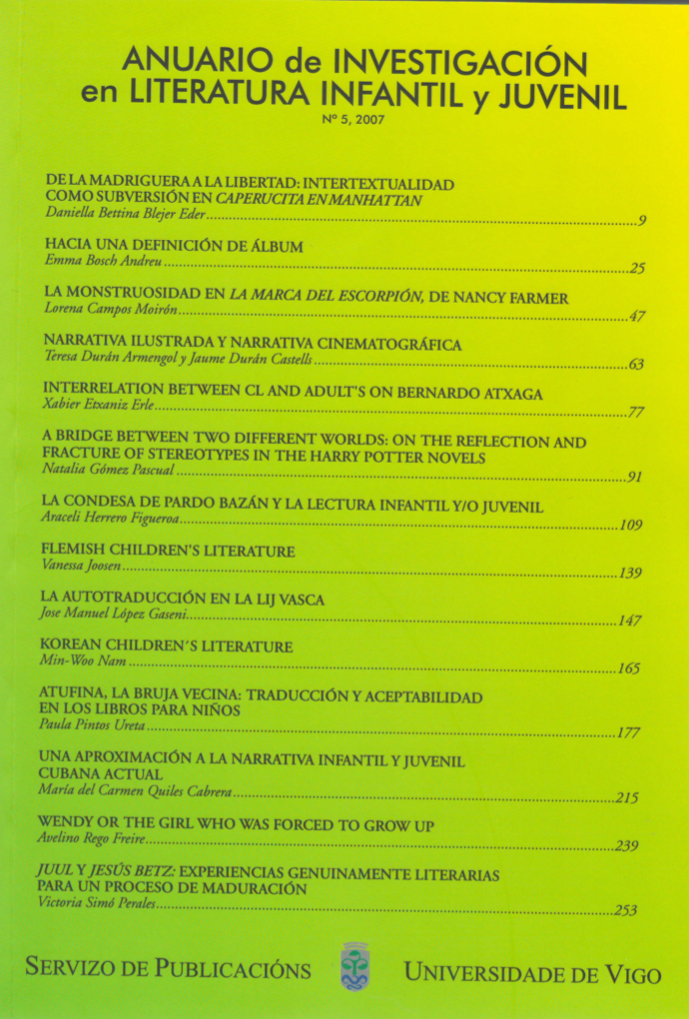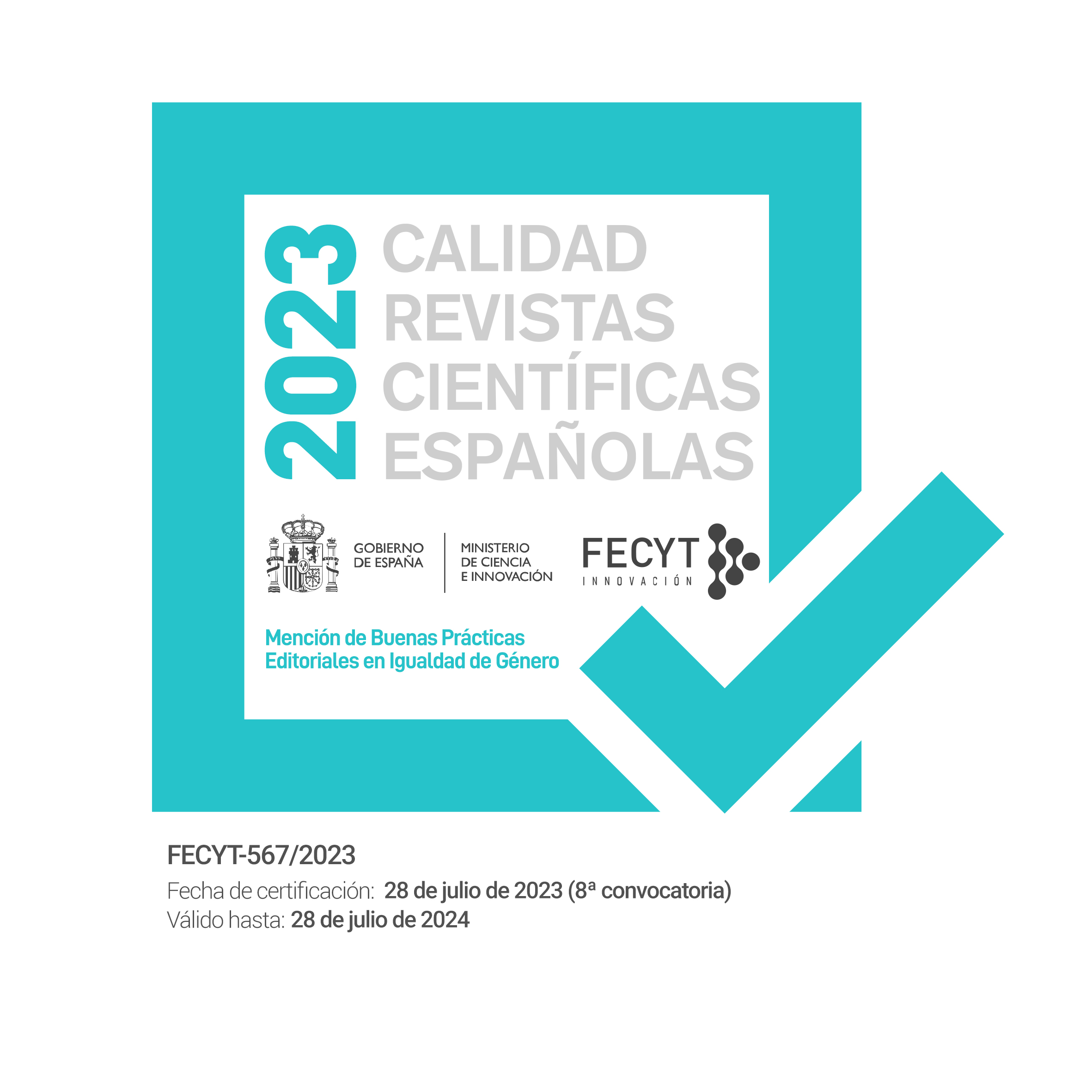La autotraducción en la lij vasca
Keywords:
Self-translation, children's literatureAbstract
The aim of this paper is to present a reflection on the psychological mechanisms involved in self- translation, which are related with the feeling of inferiority of the marginal or minority literatures. Thus, some authors belonging to bilingual communities do without the translators and decide to re-write theirs works in the other language, adding or deleting some features in order to adapt them to the new readers.
After all, those authors have chosen to write in a minority language, but at the same time they are looking for acceptance and recognition of surrounding great languages and cultures. Afterwards, we analyze four self-translation models of the current Basque children's literature, specifically that of the 90s of twentieth century, belonging to four of the most appreciated authors from the mentioned literary scene: Bernardo Atxaga, Mariasun Landa, Patxi Zubizarreta and Juan Kruz Igerabide. As a result of the research, different strategies can be noticed: an excessive tendency to the adequacy side, cultural adaptations, or re-writings of works leaning to the acceptability side (according to Gideon Toury's proposals). The Basque literature is that written in the Basque Country, placed in the Gulf of Biscay, between Spain and France, in which Basque language coexist with Spanish and French. The potential readership the Basque literature has is nearly 800,000 people.
Downloads
Downloads
Published
Issue
Section
License
Anuario de Investigación en Literatura Infantil y Juvenil has been published in open access from 2019 (vol. 17). The journal allows the authors to retain publishing rights. Authors may reprint their articles in other media without having to request authorization, provided they indicate that the article was originally published in Anuario de Investigación en Literatura Infantil y Juvenil. The journal holds the copyright of printed issues (volumes 0-16).





